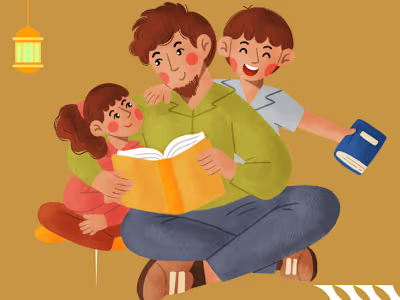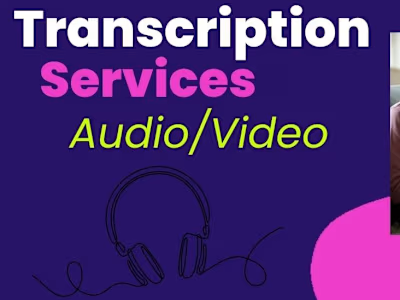Podcast - Transcription
Podcast-Minisode-001
SPEAKERS
Meli Walker
Rachel Thompson
Rachel Thompson 00:01
Welcome luminous writers to the Write, Publish and Shine podcast. I am your host, author and literary magazine editor Rachel Thompson. This podcast explores how to write and share your brilliant writing with the world. In each episode we delve into specifics on how to polish and prepare your writing for publication and the journey from emerging writer to publish author.
00:26
Hi, luminous writers. Welcome to a more interstitial maybe episode of Write, Publish and Shine episode, a bonus episode anyway, if you will, to wrap up the series of episodes we just had on empathy for writers.
00:41
In a moment, I'll go through what I'm thinking about when it comes to empathy for writers. Spoiler: it's a little angst, though I also think or hope that it will help you reflect on empathy in your own writing practice.
00:54
And I will recap all the brilliance from our most recent guests who are both on the pod and who taught workshops with us.
01:00
I'll talk about how the workshops went and the
best lessons on the three sessions which covered point of view, objects in writing and lyrical forms.
01:09
So, here are my thoughts on empathy, which started out as one of my bi-weekly letters, by the way, which you can sign up for on rachelthompson.co/letters.
01:19
So, last month in the Writerly Love community, our theme word was empathy.
01:23
And it was the theme for the last three
episodes of this podcast as well. And I like having a concept each month to
explore and muse on with other writers. But last month, as soon as I named the
theme, empathy, I got a little angst, about the theme. And I'm still trying to understand my reaction.
01:41
I recognized right away how part of the angst comes from past me, who thought when I started teaching writers to write their most luminous work that my higher purpose in the world was to help create more empathy and empathetic people.
01:56
I suspect you can probably see the problem in that statement—starting with the butt-load of audacity. And I assure you that I don’t believe this anymore.
02:05
I still believe that writing can create empathy, but empathy is not a sufficient goal for our writing. Empathy can even be insidious.
02:15
And I'll give you an example. Like when I’m doom-scrolling our media hellscape, it often feels like my empathy is weaponized, I'm led to feel with communities (feeling with is that Brené Brown definition of empathy, so feeling with other people). So, I'm led to feel with
communities that have been harmed. But through that deep feeling with those
communities, I'm also led to feel the opposite a deep vilification of groups
perceived to have harmed them.
02:45
And the narratives of good and bad people are deeply programmed in me, in all of us. And the result is the opposite of empathy, or at least both the light and dark of empathy, balancing to no moral improvement.
03:03
The other thing about empathy for me is that folks with my neurodivergence are stereotyped as unempathetic. But, of course, I live in this culture and have picked up those biases, too, so I find myself suspicious of my own thoughts. Am I just struggling with this idea of empathy because I can be perceived as un-empathetic?
03:24
And in truth, my observance of myself and other neurotypicals, and the feedback I have received from friends and
professionals, is that my brain makes me feel more empathy than is typical—to
the point where I feel someone else is in pain and I’m the one crying. (This is not cool or
truly compassionate, I assure you.)
03:46
Though, as I mentioned, I sent this out as a letter and heard back from Kimberly one of our members who said she believes you can share tears with someone without owning the pain, so I may be overstating their usefulness. As Kim was a nurse in her previous work life, so I definitely give credence to her perspective on feeling with other people in that way.
04:11
Anyway... Back to my original thought, what does this have to do about writing this idea of empathy of being weaponized? The idea of empathy being insufficient, maybe insidious sometimes. Good question, just say, okay, Rachel, bring it back to writing.
04:28
I guess I'm pushing back on the myth that I previously perpetuated.
04:32
Writers have been mythologized as being more empathetic. There is an aspect of how we talk about empathy in literary circles
filled with self-congratulation.
04:43
Any sense of specialness and putting ourselves
in some different category can excuse us from action and prevent us from changing the world.
04:52
And, while climbing down from my high horse of this so-called higher purpose, I’m still here to help writers create and share words that generally make us better people in both micro and macro ways.
05:08
So, when we discussed this in our monthly call on our theme, members came up with words like curiosity and love for better representations of the intention we want to bring to our work as writers.
05:25
We discussed how writing does give us more access to other points of view, which I don’t think is wrong per se; it’s just that we can’t stop there.
05:36
And perhaps sometimes it gives us a false sense of access to those points of view, when really, we need to be listening instead of expressing. What we think people are feeling.
05:47
As I was thinking and writing my way through this discomfort with the theme I had chosen, I brought questions about empathy
to the three writers who gifted us with their talents instructing workshops in
our community this month.
06:00
And you heard them in the previous three episodes. In Episode 65 (65 // Empathy & POV
with Naomi J. Williams) from Naomi J. Williams, shared lessons on unique points of view. And
I heard her say, and I'm quoting here,
06:12
“I think bubbly, warm, affectionate feelings are also insufficient.”
06:16
So maybe love itself is not enough to so
there's still that complexity. We haven't landed on the perfect word. And I don't think we're going to and I certainly am not going to in this recording.
And our community facilitator Meli Walker calls that kind of bubbly, warm,
affectionate feelings as "sending love and light" when people are
suffering and need concrete help, not empty sentiments.
06:41
Naomi went on to say,
06:43
“I think that love needs to motivate us to educate ourselves. By all means, we need to
write out of love, but we also need to think, read, and listen to other
people.”
06:54
So, I'm really taking to heart her words, and
also her words that;
06:59
“I think
that love needs to motivate us to actually educate ourselves.”
07:04
And then in Episode 66 (66 // Empathetic Writer: Lyndall on the
Empathetic Object) from talking to Lyndall Cain, who brought a fascinating curatorial approach to our writing practice, I was struck by the idea of empathizing with objects to better understand people from both the past and the present in our writing.
07:19
Lyndall said, “Objects are either made by people or belonged to people, or at least
have been interacted with by people, and they mean different things to
different people.”
07:29
Also, she talked about after the episode that she was concerned with the sourcing of the objects she talked about in her curatorial approach and was concerned that she may be whitewashed and put the white daze on those words. So, I wanted to just express that as well, because I think that also feels like part and parcel of this whole idea of empathy being
insufficient. And just thinking about the social, political, the context in which we're writing, in which things are gathered.
08:02
And for me, the heart of what Lyndall said in our conversation about empathy is the idea of connections, which feel like another word that brings us a layer closer to what we mean, when we say writing gives us more empathy.
08:16
“The more we think about objects and the more empathy we have for objects, the more
we can understand them, or the more we can think about them in unusual ways and
make unusual connections.”
08:27
And then our third guest in the past episodes, and the most recent episode, right before this one, and in our workshop series that we had in February, ( 67 // Empathy for Your and Your Reader with Lyric Writer, Christina Brobby) from Cristina Brobby, delighted me when I asked her my angst-filled question about empathy. And she said,
08:43
“In terms of empathy, I think just approaching your characters, approaching your
whole piece with empathy, but also yourself, practicing empathy with yourself.”
08:52
And she added,
08:53
“We have those days when we sit there and just stare forever at the screen, and nothing
comes out, or we think it is absolutely terrible, and we won’t use it anyway.
So why are we doing all of this?”
09:03
And I know those days, sometimes months and
years, very well myself.
09:07
And I'm just going to leave you with that then the idea that empathy can be directed towards itself as well. And all of the questions that I'm mulling over when it comes to empathy with writing, and I'm intentionally keeping this very open-ended, and without a conclusion about
empathy.
09:26
As I said, we hit on all these words, but I don't think we found the one perfect replacement. And I think perfectionism is another thing that can be quite insidious. And these are some musings I've been having that came rushing in when I set the theme for our members.
09:41
And I wonder if you felt like writing gives you more empathy. And if you've ever come up on the limits and the dark side of empathy or felt enchanted, as I was maybe a little enthralled, even by the false idea that empathy was enough.
09:57
If you'd like to muse on this today as I have, I encourage it.
10:00
And maybe your free writing could start even with the question,
10:03
"What is empathy?"
10:05
And then move on to the question,
10:07
"What role does empathy play in my writing practice?"
10:10
And "What else do I need to bring to my writing to shine my light on the world? Is it
love? Is it curiosity, humility, vulnerability, active listening?”
10:19
I know I'm thinking more and more of the letters it's like, when to listen and really try to understand versus just feeling with other people or assuming that I'm feeling with them.
10:30
And as you do all this, I encourage you to do as Christina Brobby said and bring care and empathy for yourself as you write.
10:37
And fun, too! Despite all the angst, I also believe that joy in our practice is essential. We had feedback from the writers who joined our past workshops last month that the FUN aspect was really helpful and got them out of their heads and onto their pages as they wrote live along with us.
10:56
So, that was what I was thinking about empathy this month. And before I close the episode, since this is an interstitial kind of special aside episode, I want to let you know about what's coming up on the podcast.
11:09
The next episode is going to be a book club conversation with Writerly Love members, Candace Webb and Jennifer Robinson, who will be talking about a real throwback book we read in our community this year.
11:22
And they'll take you through what worked for them and how the book affected their writing. And our aim is to help you decide if you want to read our craft book choice or pass on it. We'll also sharing some of the essential ideas of the book that will help you think about your
writing in a different way.
11:37
And then our following episode will be another Six Senses Showcase. Back in episode 64, we had our first showcase and the writers who presented really enjoyed reading and sharing what they learned about writing more deeply through the senses. And so we have another brilliant group of six writers ready to show you how writing through the senses helped
deepen their work -- so, stay tuned to this feed to hear from Whitney French, Cicely Belle Blain, Sarah Munn, Tamara Jong, A.L. Bishop, and Candace Webb, as they read their explorations of each sense! That's coming up in Episode 69.
12:14
So, that's our next two episodes, 68 and 69, respectively.
12:18
And then episode 70. I want to talk about this because this will be a bigger episode, where I'm going to offer a state of the community kind of overview that covers what I've noticed in our writing community and how everyone is doing.
12:32
In this episode, I'll also announce our next book club book. So this time, you can read along with us. Yes, we're bringing all of the writers who listen to the pod into the book club.
12:43
And in this special episode 70, our community facilitator Meli Walker and I will take you behind the scenes and let you in on our plans for the future in our community.
12:53
One nugget I can share with you already is that we want to you listeners, all listeners to feel more included. And we'll also do questions and answers in that episode too. If you have a question about Writing, Publishing and Shining, dear listeners, send those in to hello@rachelthompson.co
13:11
Just include episode 70 in the subject line, so I know to open it first, I get a lot of email.
13:17
And lastly, we will celebrate our members. So, those of you who are listening who are members who have taken courses with me, please share your Writerly wins, you know how to do this already. And if you don't message me in our community channel to find out and we will include these in this episode. We're going to do a roundup of publication wins this year.
13:39
And by the way, if you're not a member and are interested in joining, you can check out rachelthompson.co/join.
13:46
And if you want to see some of the publication wins of the past from our members already out there, you can check out rachelthompson.co/articles.
13:55
The Write, Publish and Shine podcast is brought to you by me, Rachel Thompson.
13:59
You can learn more about the work I do to help writers Write, Publish and Shine at rachelthompson.co. And when you're there, sign up for my Writerly Love Letters and
every other week filled with support for your writing practice. Sometimes there isn't a little more often weekly, at most, though.
14:15
And if this episode encouraged you to muse on empathy as I did and explore the dark side, the good side, the myths, the truths about empathy. I would love to hear all about it. You can reach me by email at hello@rachelthompson.co
14:31
And definitely reach out if you have questions that you'd like to send in for episode 70 include the subject line "Episode 70", when you do.
14:38
And tell other luminous writers about this episode. You can do this by sending them to the podcast at rachelthompson.co/podcast or searching for Write, Publish and Shine wherever they get their podcasts.
14:50
Thank you for listening. I encourage you to keep feeling deeply, bring your curiosity and care to your work and write luminously.
14:56
This episode was co-produced with Meli Walker and edited by Adam Linder of the spoken podcasts.
15:02
I am a guest in the South Sinai, Egypt, on lands historically and presently occupied by the el Muzzina Bedouin.
Meli Walker 15:09
This is Meli Walker, recording from unceded W̱SÁNEĆ territories.
Like this project
Posted Aug 7, 2023
I've transcribed 100s of podcast episodes. This is 1 of those professional ones with linking's, quotations etc.
Likes
0
Views
4



